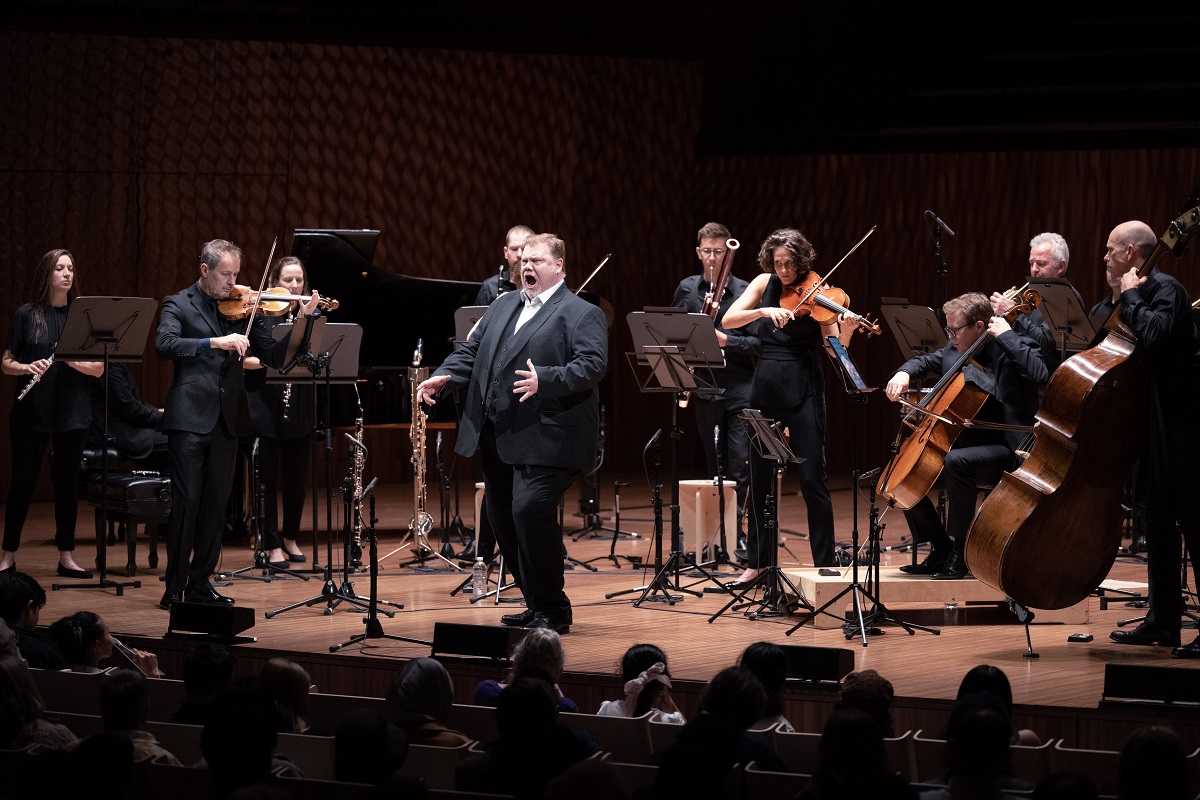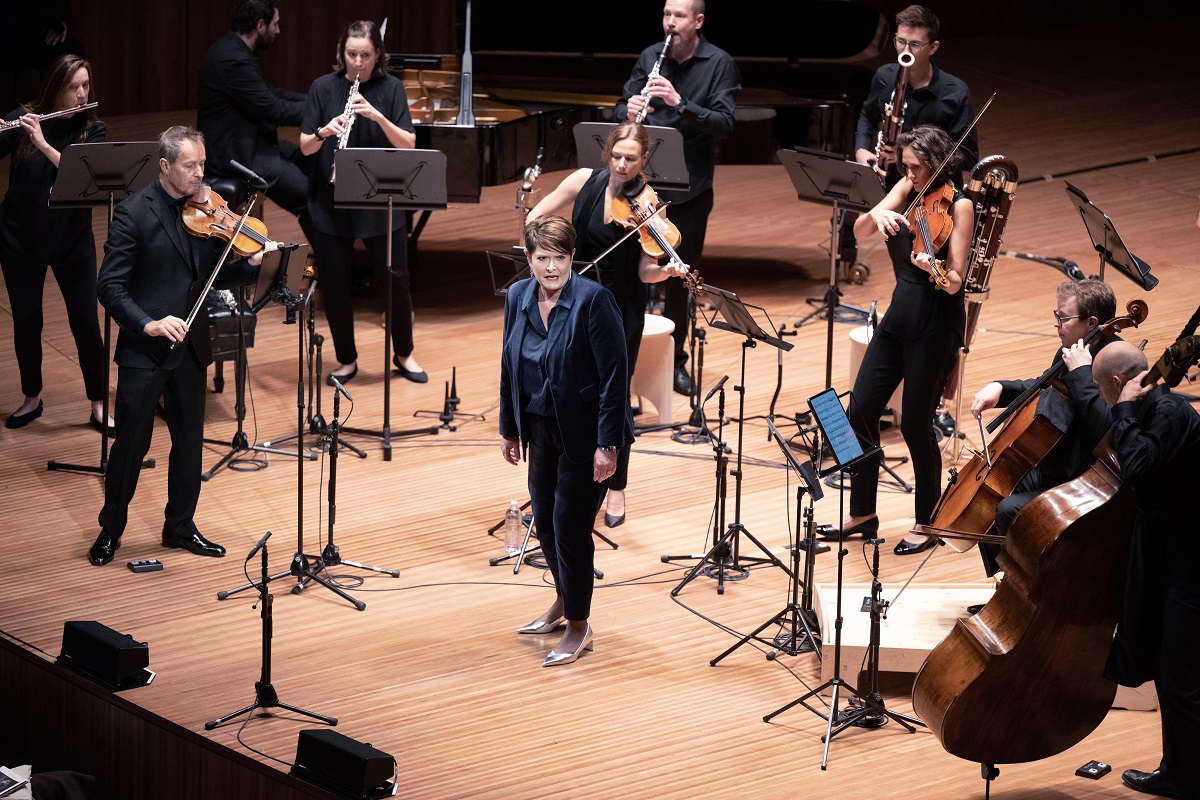
Music / Mahler’s Song of the Earth, Australian Chamber Orchestra. At Llewellyn Hall, May 24. Reviewed by HELEN MUSA.
Words alone cannot evoke the rare quality of this concert.
Performed by the Australian Chamber Orchestra, augmented to 19 by horns, woodwind, percussion, brass, piano, harmonium, celesta and mandolin in the Arnold Schoenberg/Rainer Riehn rearrangement for chamber orchestra, the evenness of the ensemble was notable, at no time allowing the strings to dominate.
The evening began quietly with a little gentle (yes) Wagner in the form of the Siegfried Idyll, composed follow the birth of his son, Siegfried. A pastoral feeling emerged in which the superb horns of Timothy Jones and Ben Jacks and the trumpet of Visa Haarala asserted themselves in imitation of the sounds of nature.
There was an historical connection to the main work of the evening, Das Lied von der Erde, (The Song of the Earth) in that Wagner had been a mighty influence on Gustav Mahler and his first wife, Alam Mahler-Werfel, whose Drei Lieder (Three Songs) were performed by Canberra-trained mezzo-soprano Catherine Carby.
Presented in new arrangements by Britain’s David Matthews, the songs, somewhat romantic in flavour, were sung with sober intensity by Carby, who responded with feeling to the poetic lyrics. A high point was The Silent Town, where Carby’s willingness to engage with the instrumentalists was remarkable.

The short first half was followed by the title piece of the evening, Mahler’s mighty song cycle, Das Lied von der Erde, the late composition that affirmed his belief in the human spirit.
From the moment tenor Stuart Skelton stepped on stage to perform The Drinking Song of Earth’s Sorrow, there was a level of frisson that is hard to describe, with all the instrumentalists actively engaging in a lively debate with each other. Here Skelton’s almost aggressive tone reflected the highs and lows of the drunkard, a figure celebrated in much of the Chinse poetry that had captured Mahler’s imagination.
Carby followed with The Lonely One in Autumn in a more subdued vein, reflecting the consequences of a drunken night. Once again, it seemed that she and the instrumentalists were conversing in a kind of musical drama.
Mahler specified that the two singers should be a tenor and an alto, or else a tenor and a baritone if an alto was not available and this performance showed precisely what he had in mind, with the contrasting vocalists alternating, but never singing at the same time.
This meant that the lengthy final movement, The Farewell, Mahler’s affirmation that the human spirit cannot be quenched, was given to Carby.
Drawn from two different poems, this movement saw mandolinist Stephen Lalor emerge to represent the lute, with Sally Walker on flute lightening the tone in bird-like trills.
It is hard to describe the effect of this concert and it is not the first-time during a Mahler performance that I have been transported to another dimension, at times not seeing the performers but rather imagining apocalyptic visions and scenes of nature that the composer magically conjures up.
But with their feet firmly on the floor, the musicians who made this happen were totally engaged in the action of the music, with Shefali Pryor’s oboe and Cor Anglais penetrating the entire concert, Stefan Cassomenos’ piano wildly extravagant and Timo-Veikko Valves’ cello underscoring the whole.
Led by Richard Tognetti conducting with his bow, this was an exhilarating performance from a perfectly unified ensemble.
Who can be trusted?
In a world of spin and confusion, there’s never been a more important time to support independent journalism in Canberra.
If you trust our work online and want to enforce the power of independent voices, I invite you to make a small contribution.
Every dollar of support is invested back into our journalism to help keep citynews.com.au strong and free.
Thank you,
Ian Meikle, editor



![For graphic designer Tracy Hall, street art is like any artwork, her canvas has been swapped out for fences and plywood, her medium changing from watercolours to spray paint.
A Canberra resident for 13 years, Tracy has been a street and mural artist for the past five.
Her first exploration into grand-scale painting was at the Point Hut toilets in Banks five years ago. “They had just finished doing up the playground area for all the little kids and the words [of graffiti] that were coming up weren’t family friendly,” she says.
“So I ended up drawing this design and I got approval for the artwork.”
Many of Tracy’s time-consuming artworks are free, with thousands of her own dollars put into paint.
@traceofcolourdesigns
To read all about Tracy's fabulous street art, visit our website at citynews.com.au or tap the link in our bio! 🎨🖌
#canberranews #citynews #localstories #canberrastories #Citynews #localnews #canberra #incrediblewomen #journalism #canberracitynews #storiesthatmatter #canberralocals #artist #streetart #streetartist #StreetArtMagic](https://citynews.com.au/wp-content/uploads/sb-instagram-feed-images/490887207_1225841146218103_6160376948971514278_nfull.webp)




Leave a Reply